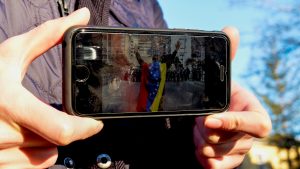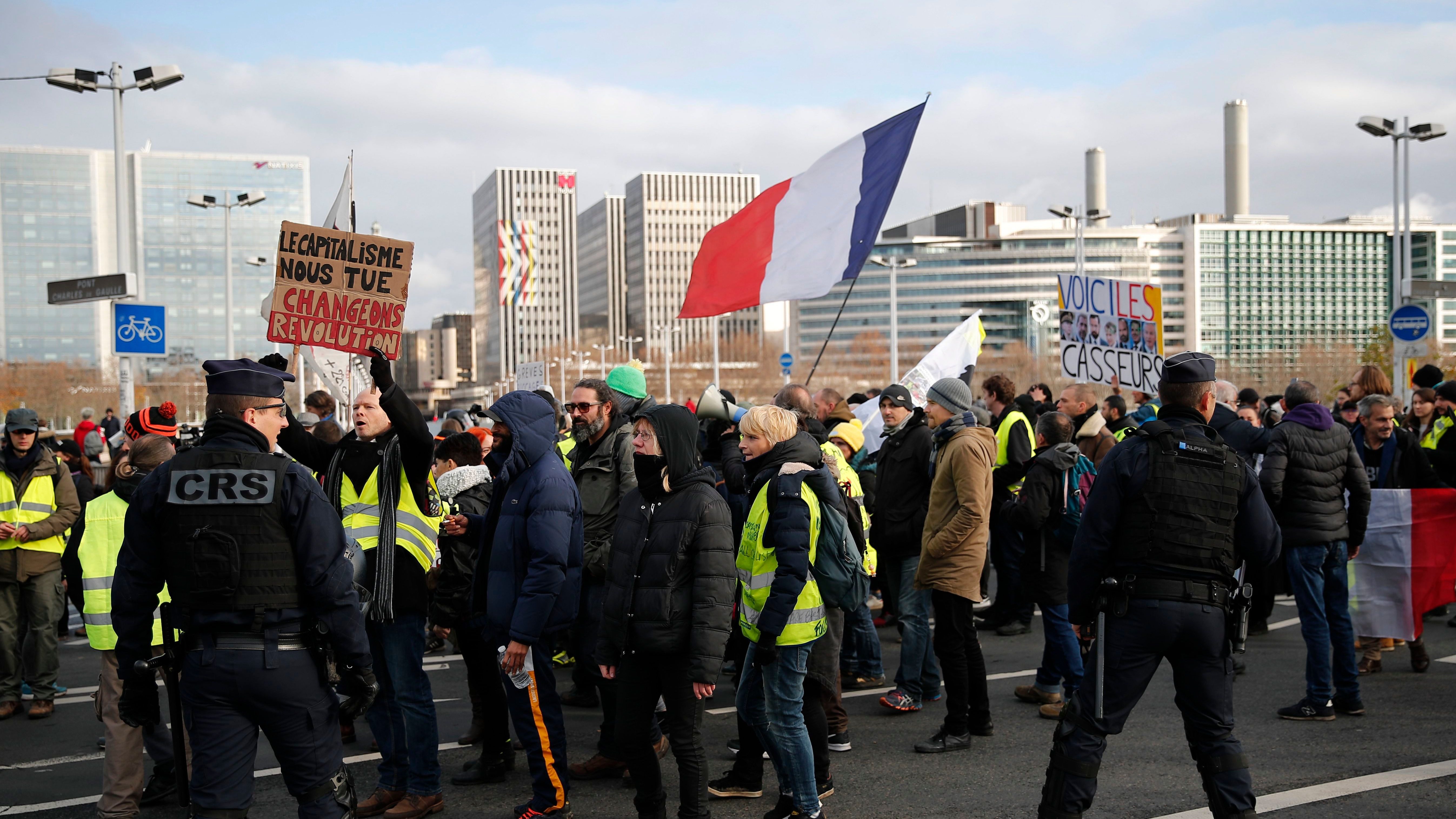If you feel as though people around the world are unhappy with their government and have taken to the streets to protest it, you would not be wrong.
In June, a series of demonstrations that began in March in Hong Kong triggered by the introduction of a now-shelved bill that would have meant criminal suspects could be extradited to mainland China. Protests in Bolivia were sparked in October after socialist president Evo Morales appeared to be leading in the first round of voting for a new president after ignoring a referendum he put forward on whether he should run for another term. Protests against Nicolas Maduro’s government in Venezuela continue since they began in 2014. Last year’s yellow vest protests continue in France, the most recent saw roads being blocked across France on Saturday.
But why should you care? Kingston University students from these countries told The River why.
Clara Chacon, Bolivia.

The protests in Bolivia may have resulted in president Evo Morales fleeing to Mexico but illustration animation student Clara Chacon still fears she will come back and the banks might restrict the flow of money.
She does not want to think about that possibility but if it happens she is worried about how she will pay for her education.
“Bolivia is following the path of Venezuela, of Cuba, who are at the same time allying themselves with Russia, with China and in some way with North Korea. Bolivia has a lot of contact with China. We’re gravely indebted to China. Now it is a pinnacle of corruption.”
Chacon adds: “The problem isn’t the ideas. It’s that people don’t keep true to their ideals and they let themselves be corrupted by power.”
Diego Evrard-Broquet, France.

Journalism & media with professional placement student Diego Evrard-Broquet said the yellow vest protests are partly made up of angry people who do not quite know what they are angry about.
It can include vote boycotters, anarchists and supporters of the far-right and left. Evrard-Broguet described the yellow vests in his native city Nice: “You would see a lot of people with signs saying ‘We should take back control of our country and keep the immigrants out.”
As a young cosmopolitan student in London, he just does not see himself in that crowd. Instead of joining the yellow vest movement he has gone to Extinction Rebellion protests in both France and the UK instead.
He said there were at least two common factors why people protesting in France and why people protesting elsewhere in the world: people being fed up with the state having too much power and people being fed up with austerity policies that mean they may work more but will still earn as much or less than before.
“I think a lot of people [around the world] want to reconnect with democracy. To reconnect democracy to their county or local area, to feel it closer to their day to day life.”
Gabriel Liu, Hong Kong.

Illustration and animation first-year student Gabriel Liu said it seems like the Western, Chinese and local media all have their own stance in the protests. Some glorify the protesters. Others vilify them.
She said: “It’s very hard to get accurate information when you’re in Hong Kong so it’s even harder to get it when you’re outside of Hong Kong. I’m a bit confused about the whole situation now.”
Liu did not join the protests when they were peaceful and while she does plan on finding out more about them when she goes home for the Christmas holidays she will not be joining them now that they are violent.
She has been relatively unaffected by the protests but her family have seen roadblocks and even a molotov cocktail on the street. She has high school classmates who go to the Chinese University of Hong Kong that was besieged in November.
“I find the situation too chaotic. I don’t think it will be useful for other countries or cities. It’s just too negative for me. They still haven’t had positive results coming out of those protests. They just get worse and worse and worse. If they want to use them as a negative example, I think that would be useful.”
Juan Rovira, Venezuela.

Venezuelan computer science student Juan Rovira was part of the initially peaceful protests in the capital Caracas. Then the military got involved, started using rubber bullets and people started to get seriously hurt. It was at this point that his mum forbade him from going.
The second-year student said: “For six to eight months I was involved in these stupid protests because I literally went to the university to check what the points of the encounter were. Sometimes when I had exams my teacher wouldn’t be there. I was frustrated that I wouldn’t be able to graduate. I lost two trimesters.”
The crisis in the country has hit Rovira’s family and friends hard. His father has spent four years trying to get an Italian nationality through Rovira’s Italian mother and grandmother so they can leave the country. One friend who stayed told him people cannot afford the luxury of protesting anymore as it would mean losing a day’s work and not eating.
He said that the reason the world should pay attention to what is happening in Venezuela was: “the reality that communism and socialism works well on paper but is really an idea masquerading as democracy.”

